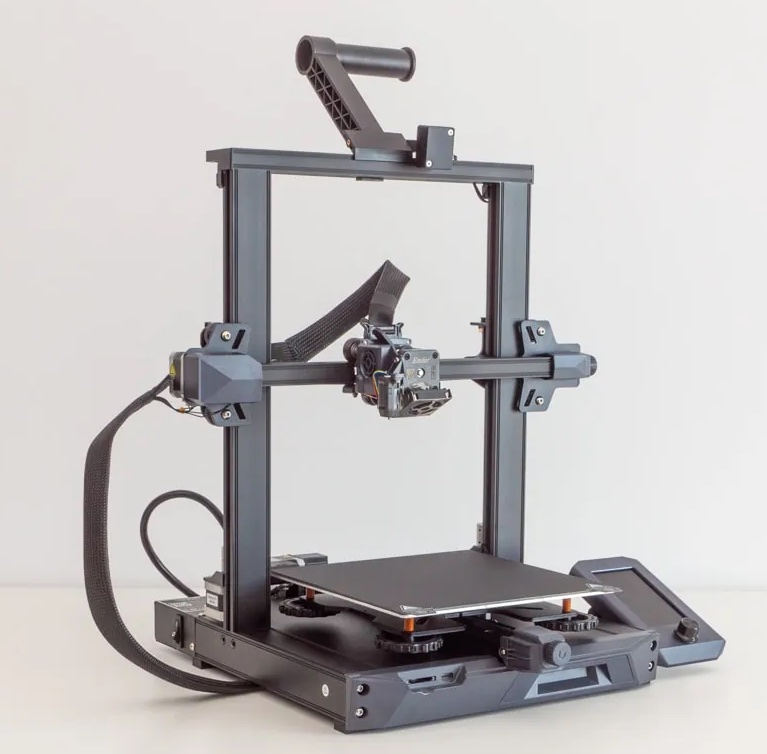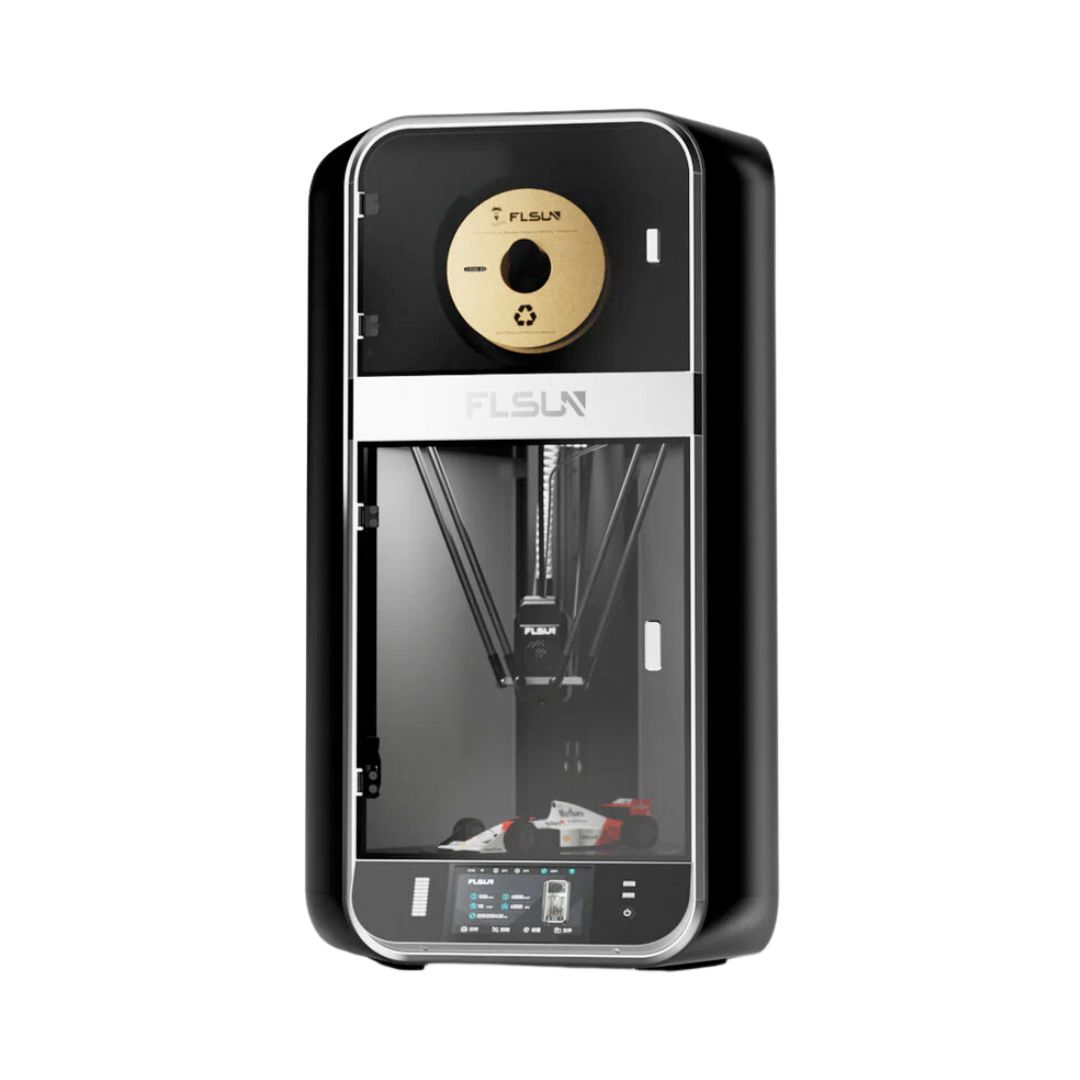Compare Ender 3 S1 Plus vs S1 PRO
Comparison between the best 3D printers
Choose the best 3D printer at the best price. The cheapest 3D printers are here.
Buy a 3D printer here with 3D Fila.
 |
 |
|
| Model | Ender 3 S1 Plus[BUY Ender 3 S1 Plus] |
S1 PRO |
| Printing Material | Filament | Filament |
| Buy Filament for Creality 3D Ender 3 S1 Plus | Buy Filament forFLSUN S1 PRO | |
| Estimated price | $549,00 | $1500,00 |
| Manufacturer | Creality 3D | FLSUN |
| Release Year | 2022 | 2024 |
| Print Volume [mm] | 300x300x300 | 320x320x430 |
| Printer Size [mm] | 557x535x655 | 450x450x1200 |
| Weight [kg] | 10,25 | 41 |
| Power Loss Recovery | YES | YES |
| Enclosed printer | NO | YES |
| Bed Leveling | Automatic | Automatic |
| Filament End Sensor | YES | YES |
| Bed type | Heated | Heated |
| Power supply system | Direct Drive | Direct Drive |
| Standard nozzle | 0,4 | 0,4 |
| Maximum Nozzle Temperature [°C] | 260 | 350 |
| Maximum Bed Temperature [°C] | 100 | 120 |
| Maximum printing speed [mm/s] | 150 | 1200 |
| Filament holder | YES | YES |
| Camera for supervision | NO | NO |
| Recommended filaments | PLA, PETG, Tritan, Flex, ABS | PLA, PETG, TPU, ABS, ASA, Nylon, PC, PP, HIPS |
| Recommended slicers | Cura, Simplify, Slic3r, IdeaMaker | FLSun Slicer 2.0, Orca Slicer |
| Maximum Resolution [mm] | 0,1 | 0,01 |
| Processor | ||
| Display | Display touchscreen 4,3'' | Touchscreen 7'' |
| Power Supply | 110/220V / 350W | 500W 110-240V, 50/60HZ |
| Connectivity | SD / USB | Wi-Fi, USB, app FL Sun World |
| Operating systems | Windows, Mac, Linux | Windows, Mac |
| Date of registration in the system | 2022-11-04 | 2024-12-16 |
| Release date | 2022 | 2024 |
| Extra features | The Ender 3 S1 Plus 3D Printer offers quality prints with a build volume of 300x300x300 mm. It stands out for its "Sprite" extruder, automatic bed leveling and easy-to-use touchscreen. It has excellent safety features and simple assembly. In addition, it features temperature uniformity in the heated bed, suitable for various materials. | The FLSUN S1 Pro is a high-speed Delta 3D printer, reaching up to 1200 mm/s with 40,000 mm/s² acceleration. It features a build volume of 320 mm (diameter) x 430 mm (height), a 350°C hotend, dual-zone heated bed up to 120°C, a 50°C heated chamber, and an active filament drying holder. It includes a camera for remote monitoring, integrated UPS for power-loss safety, a HEPA filter, and a 7 touchscreen interface. Perfect for large and complex projects. |
| Support for multiple colors and materials (AMS and CFS) | NO | NO |
Notes * |
||
| Cost-benefit | 6 / 10 | 7 / 10 |
| Hardware | 2.4 / 10 | 4.8 / 10 |
| Tela | . | . |
| Print volume | 4 / 10 | 4 / 10 |
| Performance | 1 / 10 | 9 / 10 |
| [BUY Ender 3 S1 Plus] |
Conclusion |
| In comparing the Ender 3 S1 Plus and the FLSUN S1 Pro, several key factors emerge that highlight the strengths and weaknesses of each printer, particularly in relation to their prices. The Ender 3 S1 Plus, while being significantly more affordable, offers solid performance for hobbyists and general users. It features a decent print volume of 300x300x300 mm, commendable print quality, and effective safety features at a reasonable cost. Its automatic bed leveling and easy touchscreen operation make it user-friendly, especially for those new to 3D printing. However, its performance and print speed are modest compared to higher-end models, limiting its application in more demanding projects. Conversely, the FLSUN S1 Pro positions itself as a high-performance option, designed for professional users or serious enthusiasts. With an impressive maximum printing speed of 1200 mm/s, a larger build volume, and the ability to print with a wider variety of materials, it caters to more complex and large-scale projects. Additionally, its advanced features—including a dual-zone heated bed, higher hotend temperature capacity, and a touchscreen interface—add to its appeal for users looking to invest in a more sophisticated 3D printing experience. However, this comes at a significantly higher price point. Ultimately, the choice between these two printers depends on the user's specific needs and budget. The Ender 3 S1 Plus may be more suitable for beginners or those seeking a reliable printer for everyday projects without breaking the bank. In contrast, the FLSUN S1 Pro is ideal for users who require enhanced capabilities for complex professional tasks and are willing to invest more for superior performance and additional features. Each printer offers a compelling case within its respective market segment, and the decision should be aligned with the intended use and printing requirements. |

